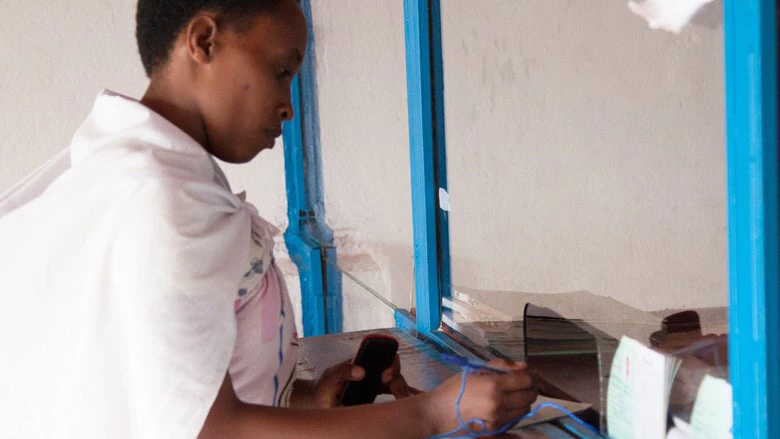With financial inclusion now established as an objective for most financial sector policymakers worldwide, the day-to-day responsibility for ensuring its achievement in a responsible, consumer-friendly, and evidence-based manner often falls to financial sector supervisors. Two challenges are particularly relevant: first, with an increased policy focus on financial inclusion, supervisors are often tasked with adapting reporting systems to collect granular data to monitor financial inclusion and inform policy. For example, how many customers are using each product? Are newly opened accounts active or dormant? What is the rate of growth of agent networks in rural areas?
Second, there is a global trend towards diversifying the range of financial service provider (FSP) types in a given market in order to improve competition and consumer choice, and ultimately financial inclusion. This means that non-bank FSPs such as mobile network operators (MNOs), fintech companies, financial cooperatives and microfinance institutions are increasingly brought under the supervisory mandate of supervisory authorities. This presents a significant challenge for financial sector supervisors who must cover a large and diverse set of FSPs with distinct risk profiles and capacities, stretching their already limited resources. Collecting and analyzing accurate, relevant, and timely information from these providers is at the heart of this supervisory challenge.
Many financial sector supervisors are seeking technology-enabled solutions to address these challenges, an approach known to some as “suptech” (i.e. supervision technology). The National Bank of Rwanda (BNR) provides a case in point.
Rwanda has an ambitious financial inclusion agenda and also epitomizes a data-driven culture ; as a result there is an almost insatiable demand for accurate, high-frequency data to monitor financial inclusion progress. And, since the establishment of over 400 Savings and Credit Cooperatives (SACCOs) in 2009 and the entry of mobile network operators into the financial services space beginning in 2010, BNR has had to significantly expand the scope of its supervisory mandate to cover new FSPs.
BNR partnered with Sunoida Solutions to develop an electronic data warehouse (EDW) system to automate and streamline the reporting processes that inform and facilitate supervision.
The EDW system went live last month. For now, it covers eight banks, three microfinance institutions, two money transfer operators, and one MNO.
The EDW system is meant to generate operational efficiencies at BNR and improve the quality, frequency, and scope of reported data. For banks and other FSPs with sophisticated information systems, the EDW allows BNR to automatically “pull” data from their systems. This approach reduces the need for compliance officers at these institutions to manually construct and send reports, as well as the errors and inconsistencies often associated with this process. BNR pulls some types of data daily (e.g. related to transactions), greatly improving the degree to which BNR supervisors can monitor the market in real time.
Extending this system to Rwanda’s large SACCO sector presents additional challenges as many of these institutions have just recently started developing information systems and in many cases there is nothing to “pull” data from. BNR aims to fully on-board SACCOs to the EDW within two years; for now, they will continue to “push” data to BNR via Excel-based reporting templates.
The implementation of such a comprehensive technology solution presents both opportunities and challenges. With this new wealth of information at its disposal, BNR can also adapt its supervisory processes and methodologies to fully leverage the collected data and allocate supervisory resources more efficiently. BNR has also begun to operationalize recommendations from a World Bank assessment (under the multi-year Financial Inclusion Support Framework country program) on improving the scope, quality, and consistency of data to monitor financial inclusion, and do so without increasing the reporting burden on financial service providers. For example, BNR is now able to collect gender disaggregated data on the uptake and usage of a wide range of financial products and services. As Rwanda develops its legal and regulatory framework for financial consumer protection , the EDW system can be further adapted to collect relevant data on complaints handling and other issues.
On the other hand, by assuming greater control of the reporting process, BNR must also identify and manage new operational and reputational risks. Significant capacity building at both BNR and FSPs is needed to acclimate staff to the EDW system and FSPs must ensure that they input relevant data into their information systems. Many FSPs in Rwanda are now expanding and standardizing the type of information they collect during the customer acquisition process, such as gender, economic sector, etc. And finally, as with any data system upgrade, BNR must reconcile its historical data with the new data streams. BNR is confronting these challenges and is well on its way to leveraging ‘suptech’ to achieve its financial inclusion goals.
Photo:A'Melody Lee/The World Bank



Join the Conversation